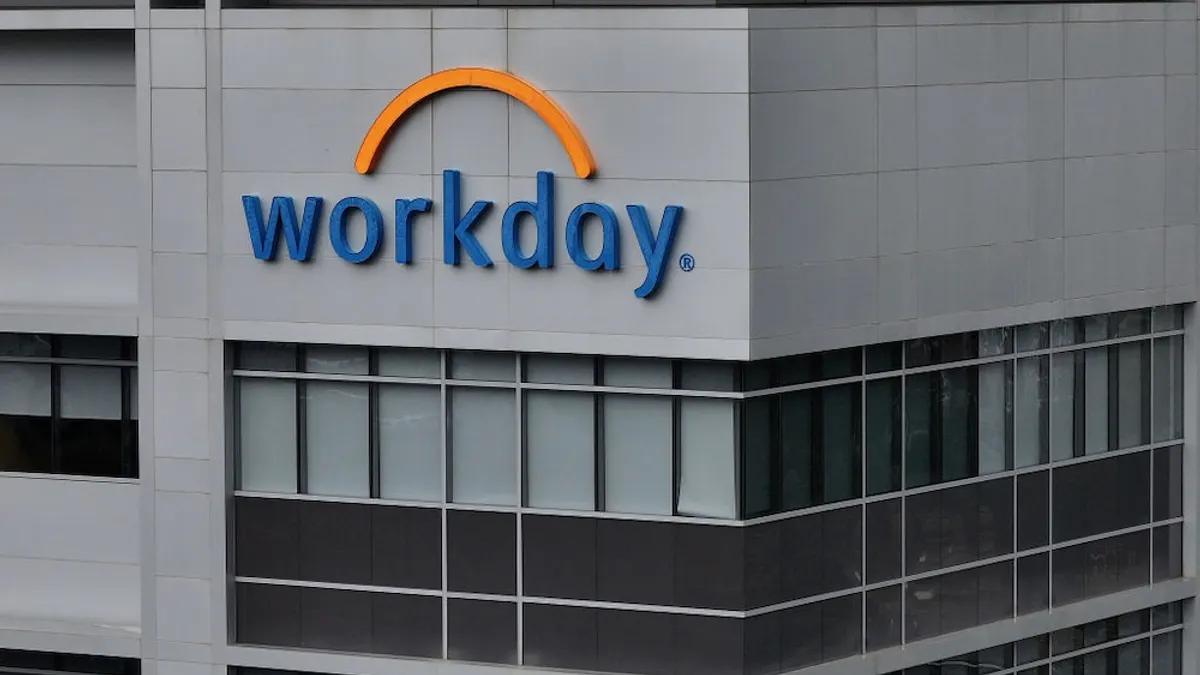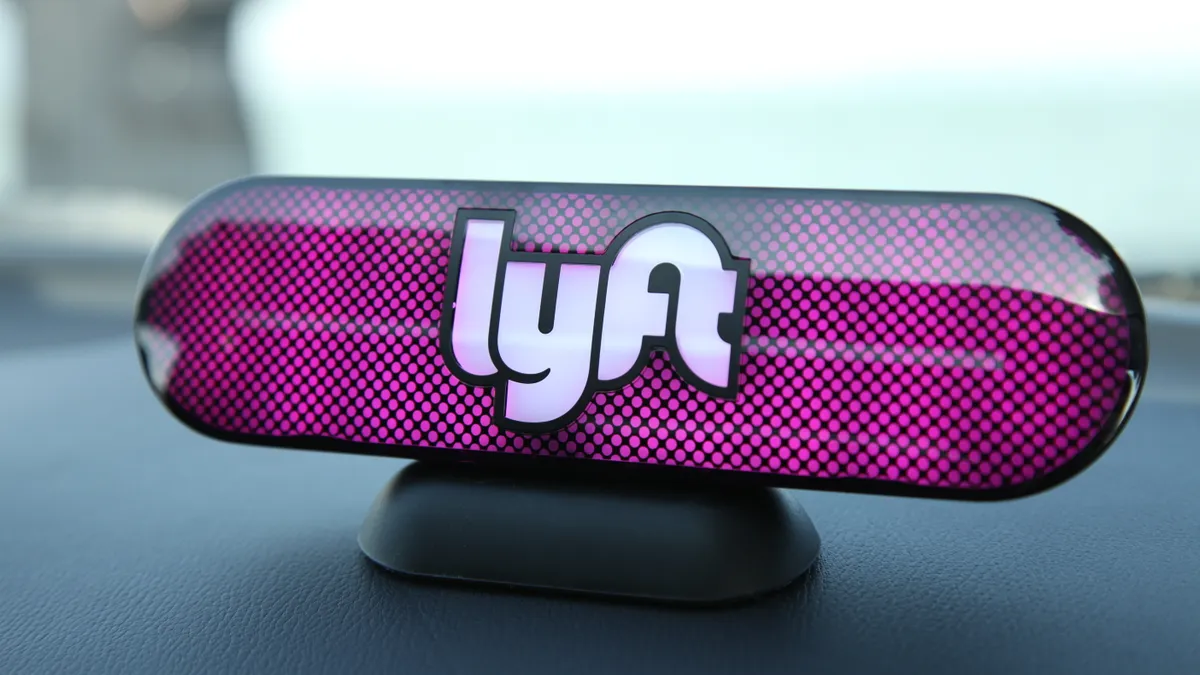Everybody wants to be the Salesforce for HR — the all-in-one platform that would serve as the foundation for HR applications across the space. Zenefits strives for this title, as do Paychex and ADP, executives at each company recently told HR Dive in interviews.
Name an HR tech provider, and it's likely gunning for this crown — for good reason. As technology improves broadly, employees (and likely HR managers) no longer tolerate slow, unresponsive tools to access their paid time off, for example. But in modern HR, no app is an island. Managers are likely using multiple tools to manage a variety of programs, and if a provider wants to keep up, they have to escape the mindset of the silo and welcome their friends — and sometimes enemies — to their ecosystems to keep stakeholders happy.
This march to integration has led to some fascinating pairings, all in the mission to make HR accessible everywhere and give HR managers room to do the more meaningful work. Some household names have been sniffing around the HR space, too, spicing up an already swiftly shifting market. But what does that mean for the profession overall?
Why team up with the new (big) kids on the block?
Both Paychex and ADP announced integrations with Workplace by Facebook, the social media giant's enterprise and human capital management (HCM) platform. Why would two known HR names want to ally with what amounts to an industry interloper?
Rather than make employees navigate a totally new HCM application, Paychex decided to bring their HCM into Facebook's already known platform, Tom Hammond, VP of corporate strategy and product management at Paychex, told HR Dive. Paychex figured Facebook has most companies beat when it comes to creating a social experience — so when you can't beat 'em, partner with 'em.
"We don't want to invest dollars in trying to replicate a social collaboration platform when we have the opportunity to collaborate with the leader," Hammond said. "So that's why we partnered with Facebook … to leverage their strengths and provide value to the business."
In HR tech, business is good, prompting prominent tech companies of all types to at least take a second look at HCM, Don Weinstein, chief strategy officer at ADP, told HR Dive. Rather than fight those companies or attempt to recreate the consumer-level technology that many of their customers already use, Paychex, ADP and others want to accommodate workers across platforms.
"As more young people are entering the workforce, they are interested in social collaboration platforms," Hammond said. "They aren’t that interested in emails." They, and workers of all ages, increasingly want access to their HR information on their own terms.
Enter Slack, one of the big name work chat platforms. It has also teamed up with ADP to allow workers to make simple HR queries through the Slack platform, such as time off balances.
"HR is something that literally every employee interacts with when they are at a company," Brad Armstrong, VP of business and corporate development at Slack told HR Dive. Both Slack and ADP have an interest in engaging employees on their own platforms. But to engage employees, you follow them — not the other way around.
"HR everywhere is our strategy," Weinstein said. "Most applications view themselves as a destination. They want to take people out of their day to day and put them in their environment." And while there is a place for such platforms, especially for HR managers, he said, most employees don't need the full suite of ADP or Paychex offerings every time they want to access their latest paystub. If HR wants to remove the brunt of day-to-day work from their plates, they’ll have to adjust to that.
Self-service is here to stay
Self-service is the new name of the game for HR tech. Employees are increasingly comfortable managing aspects of their own employee experience, Hammond said, so to serve their clients, tech providers are actually helping employees skip talking to their HR managers entirely (at least for the less complicated matters).
"There is a significant amount of HR work that is around compliance and tasks that are very routine," Hammond said. "The HR professionals we interface with have asked us to help them get out of that activity."
The nature of the tech itself, also, can place undue pressure on HR personnel if it is not managed appropriately, Weinstein said. A restaurant operator, for example, is not running a multinational corporation with a highly staffed HR organization. How would they be able to manage multiple HR vendors if those vendors didn’t have any kind of cross-reactivity or self-service function? How could a single manager handle both the volume of daily HR requests and add strategic value to the organization?
The net of HR tech interactivity will likely only grow as HR managers strive toward playing more strategic roles in their companies, Weinstein said. HR is responsible for leveraging processes to build the company culture and push forward strategic initiatives. Broken processes, after all, lead to employees bolting for the door, more likely than not.
The 'next Salesforce' and why managers should care
If anything, HR managers won't be lacking for options regarding tech partners. "There's been a huge explosion in the landscape in recent years," Weinstein said, and companies will likely continue to poke their toes in the water.
Who will win? Naturally, both Hammond and Weinstein said their companies are striving for the coveted "Salesforce for HR" title. Both, however, spoke to the importance of flexibility and inclusion as a matter of HR tech survival.
"The company that really gets this right is building a series of solutions that is at the core of what an HR department does," Hammond said. But that company will also have to recognize that what that "core" looks like may change as needs change, and it will have to move quickly to accommodate that new need. Serious work chat, for example, only came on to the scene within the past decade or so, and few likely could have predicted its rise.
"We were borrowing from the smartphone universe," Weinstein explained of ADP's approach. "The value of the platform is enhanced by opening it up to allow others to innovate on your platform rather than closing it off.”
HR practitioners, too, must adopt some of this thinking; employee desire for flexibility is one reason Bring Your Own Device (BYOD) policies have taken off. Usability of HR tools is more important now than ever, especially since workers expect consumer-grade user interfaces for just about any process they engage with, work-related or not.
In other words, "user first" thinking is definitely in. "It's not a question of making ADP different or better because of Slack," Armstrong said. "Mobile, for example. It's where the people are. It's the experience people are used to having. In my mind, it makes perfect sense that ADP and others are thinking this way."
HR managers have to provide their workers with the tools they need, even if that may mean going a slightly unusual route. In this talent market, few employers can afford to think otherwise.




















